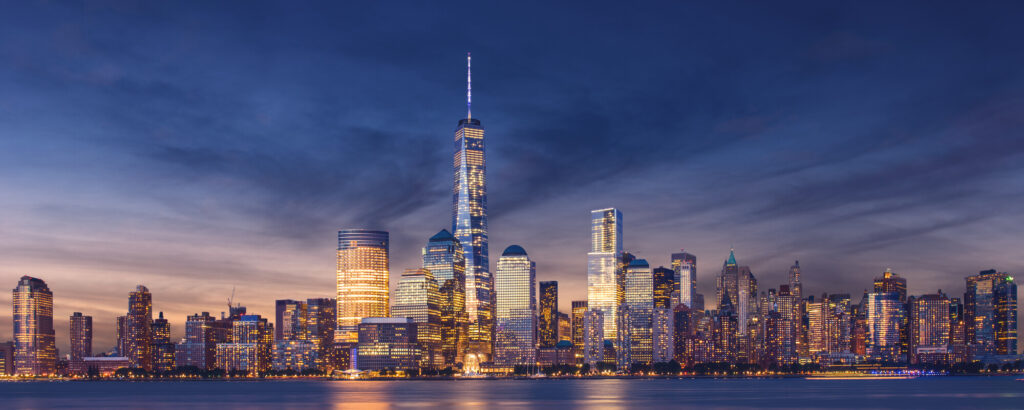Attorney Mehdi Essmidi was a life saver. I was in a very horrible situation, where I reached out to Mehdi on a Sunday, and was able to speak with him regarding my issues. Rather than wait until the following Monday, we set a time to meet & speak so take action in regards to my issues. Fast forward, my case was later dismissed - and my I was able to resume my daily life. Cheers to Mehdi.

New York Protesting Arrest Attorney
Call us now or schedule a free consultation, and Attorney Mehdi Essmidi will contact you personally to discuss your case.

People arrested during a protest in New York often deal with concerns about potential legal repercussions. The nature of the charges, the legal process, and the possibility of facing a trial or a criminal record can weigh heavy on anyone’s mind. But you don’t have to face this alone.
At The Law Offices of Mehdi Essmidi, we have a successful track record of handling protest-related cases. Led by former New York City Prosecutor Mehdi Essmidi, our firm knows how to anticipate and counter the strategies prosecutors use against you to seek the best possible outcome. Contact us today for a free consultation.
Understanding New York Protesting Arrests
Protests are a fundamental right protected under the First Amendment of the Constitution. However, when law enforcement believes that laws have been broken during a protest, arrests can happen. The charges from protesting arrests range from minor infractions to serious felonies, depending on the circumstances.
New York City police have broad discretion in making arrests during protests. Even peaceful protests can end up in allegations of disorderly conduct, unlawful assembly, resisting arrest, or more serious offenses such as rioting or inciting a riot.
However, the burden of proof lies with the prosecution, and they must prove beyond a reasonable doubt that you committed the alleged crime. This is where having an experienced criminal defense attorney is essential.
Challenges and Limitations of New York Police Arrests
Encounters between civilians and law enforcement during protests often end up in misunderstandings. It’s not uncommon for bystanders or peaceful protesters to be swept up in mass arrests. Furthermore, police officers must adhere to strict procedures during an arrest, given that protesting is a civil right.
Protesting Related Charges
Here are some of the most common protesting-related charges we see following New York protests:
§ 195.05. Obstructing Governmental Administration in the Second-Degree
A person is guilty of obstructing government administration when they intentionally try to prevent law enforcement or public servants from performing an official function through intimidation, physical force, or interference.
§ 215.50. Criminal Contempt in the Second Degree
Criminal contempt refers to disrespecting or disobeying the authority or dignity of a court. Under New York Penal Law, it is a class A misdemeanor to protest within two hundred feet of a courthouse, calling aloud, shouting, and holding signs concerning:
- A trial held in this courthouse
- The character of the court or jury engaged in such a trial
- Making demands of such court or jury in connection with a trial
§ 240.05. Riot in the Second Degree
A person is guilty of riot in the second degree when, with four or more people, they engage in tumultuous and violent conduct and intentionally or recklessly cause or create a risk of causing public alarm.
§ 240.06. Riot in the First Degree
A person is guilty of riot in the first degree when, with ten or more people, they engage in tumultuous and violent conduct and intentionally or recklessly cause or create a risk of causing public alarm.
If, as a result of such conduct, a person other than one of the participants suffers physical injury or substantial property damage, charges might escalate to a class E felony.
§ 240.08. Inciting to Riot
A person is guilty of inciting a riot when they urge ten or more people to engage in tumultuous and violent conduct likely to create public alarm.
§ 240.10. Unlawful Assembly
A person is guilty of this crime when they assemble four or more people to engage or prepare to engage in volatile and violent conduct likely to cause public alarm.
§ 240.20. Disorderly Conduct
A person is accused of disorderly conduct when, with intent to cause public inconvenience, they:
- Engage in fighting, violent, tumultuous, or threatening behavior.
- Make unreasonable noise.
- Use abusive or obscene language or make obscene gestures in public places.
- Disturb any lawful assembly or meeting.
- Obstruct vehicular or pedestrian traffic.
- Gather with others in a public place and refuse to comply with a police order to disperse.
- Create a hazardous or physically offensive condition by any act which serves no legitimate purpose.
§ 205.30. Resisting Arrest
A person is guilty of resisting arrest in New York when they intentionally prevent law enforcement from completing an arrest.
Consequences of a Conviction
Protesters can face fines, probation, community service, and jail time. The severity of charges depends on the circumstances of each case.
For instance, individuals who engage in vandalism or property damage during a protest may face more serious charges related to property destruction. Below is the classification of protesting-related charges under the New York Penal Code:
- Obstructing governmental administration in the second degree is classified as a class A misdemeanor.
- Criminal contempt in the second degree is classified as a class A misdemeanor.
- Resisting arrest is classified as a class A misdemeanor.
- Unlawful assembly is classified as a class B misdemeanor.
- Inciting a riot is classified as a class A misdemeanor.
- Riot in the second degree is classified as a class B misdemeanor.
- Riot in the first degree is classified as a class E felony.
Common Defenses
An experienced criminal defense attorney can use several defense strategies. Here are a few potential defenses:
First Amendment Rights: The First Amendment protects your right to free speech, which includes the right to protest. This could be a strong defense if your actions were protected under the First Amendment.
Mistaken Identity: In the chaos of a protest, it’s not uncommon for the wrong person to be arrested. If it can be proven that you were not the person who committed the alleged crime, this could lead to your charges being dropped.
Lack of Evidence: The prosecution must prove beyond a reasonable doubt that you committed the alleged crime. If they cannot provide sufficient evidence, your charges may be dismissed.
Unlawful Arrest: Law enforcement must follow specific procedures when making an arrest. If these routines were not followed, your arrest may be deemed unlawful, and charges could be dropped.
Contact us for a Free Consultation
Facing criminal charges can create a lot of pressure. But you don’t have to face this without legal representation. Contact a New York protesting arrest attorney as soon as possible. Remember, the sooner you seek legal advice, the sooner we can get started working on your case. Contact us today for a free consultation.
Frequently Asked Questions
Can I be arrested for peacefully protesting in New York?
While the United States Constitution protects the First Amendment right to peacefully assemble and hold signs, there are reasonable restrictions on the time, place, and manner of protests. Violating local laws related to public safety, obstructing traffic, or refusing to disperse when ordered by law enforcement may lead to arrests.
What to do if I’m arrested during a protest?
Being arrested during a protest can be a frightening experience. You may not know what to do or what your rights are. Here are some crucial steps to follow if you find yourself in this situation:
- Always use the right to remain silent. It will benefit you because law enforcement can use a defendant’s words against them. Politely inform the officer that you wish to remain silent and request a defense attorney as soon as possible.
- If an officer tries to arrest you, resisting can escalate the level of criminal charges, and if an officer is injured while someone is resisting, felony charges could be filed.
Schedule a Free Consultation

Experienced Criminal Defense Attorney
As a former New York City Prosecutor, Attorney Mehdi Essmidi knows the playbook that the prosecution will use against you. He uses his experience and knowledge to aggressively fight your charges and get you the best possible outcome. If you're looking for an aggressive defense lawyer who won't back down from a challenge, then Attorney Essmidi is the right choice for you.